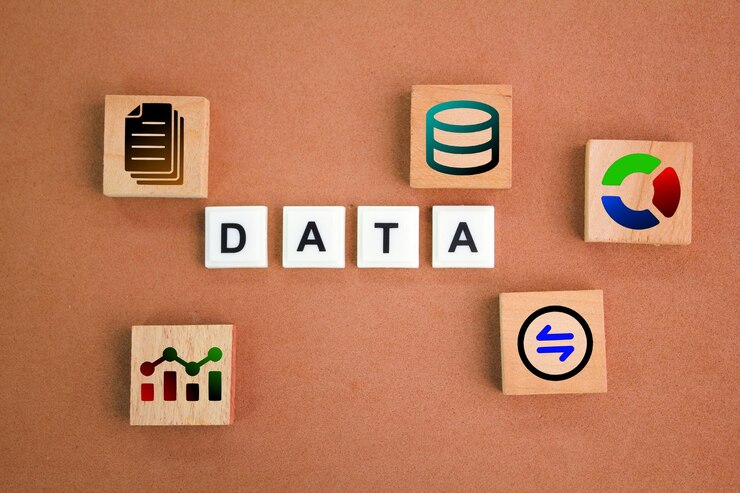Don’t Let Your Data Go to Waste: The Importance of Data Stewardship

Data has become the lifeblood of business operations in this digital, modern age. Every click, transaction, and interaction generates valuable information that can shape strategic decisions and fuel growth.
However, the abundance of data also brings challenges, from ensuring data accuracy to safeguarding sensitive information, especially regarding customer master data management of personal and financial information.
This is where data stewardship is a critical practice that can profoundly impact business performance. Discover the profound influence of data stewardship on business performance.
What Is Data Stewardship, And Why Is It Important?
Data stewardship manages and oversees an organization’s data assets to ensure quality, integrity, and security. t involves defining data ownership, establishing governance policies, and implementing data collection, archive storage, and utilization procedures.
Essentially, data stewardship is about taking responsibility for the well-being of data within an organization.
In today’s competitive landscape, data is more than just a byproduct of business operations; it’s a strategic asset that can provide organizations with a significant competitive edge.
Whether you are a retail giant looking to personalize customer experiences, a healthcare provider striving to enhance patient care or an industry leader in master data management, data is the cornerstone of your endeavors.
Now, you might hear the term Data stewardship program. This is more like a collection of practices that ensures that the organizational data is accessible, usable, an,d lastly, very much secure. These programs are typically aligned with the data governance policies of an organization.
The Role of Data Stewardship in Business Performance
Data stewardship is known for being a very critical practice that mainly helps businesses to ensure that their data is accurate, secure, and compliant. This can improve a business’s performance in several ways.
Informed Decision Making
The data stewards ensure that data is trustworthy as well as reliable. This further helps the stakeholders to make effective decisions.
Reduced Speed
The stewardship ensures that the data is high i quality. As a result, it requires less time to clean, develop, code, and test the data.
Proactive Use Of Any Data
Data stewards accompany a company to find a very proactive use of data in order to enable new business outcomes.
Effective Screening
Thirdly, data stewardship ensures that organizations have an effective screening. This helps in various financial crime obligations.
Compliance
Lastly, stewardship ensures that the data is being managed in compliance with all kinds of legal as well as regulatory requirements. This includes data privacy laws as well as industrial regulations.
Things That You Must Consider While Choosing A Data Stewardship Program
When you are choosing a data stewardship program, you must consider things such as
- Goals and metrics. You must have defined goals and success metrics for the program. These are the metrics that will help you to include financial, human development and quality.
- Organizational culture. You must ensure that the particular enterprise supports the data stewardship program or it can help in data stewardship’s vision.
- Training. Providing training for the involved parties.
- Community. Fostering a sense of community along with the data stewards in order to celebrate the success or to establish their credibility.
- Data stewardship tools. You must use the supporting tools, just as the metadata repository, the central issue log, the data profiling tool, and the business glossary.
Data steward vs. data owner vs. data custodian
Understanding who a data steward, owner, or custodian is involved in being successful in data management and good business in dealing with the data.
Data Steward: A data steward searches in the quality and reliability of data. He makes sure that there is the correctness, consistency, and appropriate usage of data within an organization. It covers the production of standards, guidelines, and the best means of handling data.
Data Owner: These are usually senior leaders or department heads who own a subset of data. They can decide on who should have access to such data and what use of them in the business is appropriate.
Data Custodian: This is the person responsible for the care of managing data. They take care of how data is stored, kept safe, and backed up, ensuring that it is protected and accessible to the right users. Good data management helps businesses keep data accurate and safe, which improves decision-making and business success.
Top 7 Data Stewardship Principles
As we all know data stewardship is a complete process of managing as well as overseeing the data assets of an organization. This involves understanding the data needed for a business, identifying, creating, curating, storing, and maintaining data, and lastly, ensuring consistency as well as reliable access to the data.
Now, there are a few principles that come with the Data stewardship principles. Read on to find out…
- Better data integrity: The data must stay reliable as well as unaltered from the creation phase to the destruction phase. This data specifically includes security control, backups, and data validation.
- Defined roles and designations: The data stewards need to have full members of a data team. Furthermore, they need to be involved in various discussions related to policy and procedure.
- Ensure better data privacy: Data stewardship must protect all kinds of data.
- Maintain trust: The Data stewardship needs to be transparent as well as engaging.
- Using relevant standards as well as practices: Data stewardship needs to be relevant to all kinds of international standards and practices.
- Encourage innovation: The agencies must be able to implement stewardship in various ways that align with them.
Think long term: The data stewardship needs to fit for purpose for long-term success.
Data Steward Types
There are various types of data stewards that every business must know about. Each of them comes with its own set of responsibilities and focus areas.
Here are some of its most common types:
1. Business data stewards
These stewards are responsible for regulating data assets that have an association with specific business operations. Some examples include operations, finance, and marketing. All of them work closely with users to comprehend the requirements of data and ensure data management helps in supporting their requirements.
2. Technical stewards
These stewards help in managing data assets from the perspective of technology like data security, data architecture, and data integration. They function very closely with IT teams in order to ensure data management. Further, it supports technical needs along with best practices.
3. Data governance stewards
When it comes to ensuring data management in accordance with organizational standards, data governance stewards play an integral role. They operate closely with technical and business data stewards in order to implement and develop data governance frameworks.
4. Data quality stewards
Such stewards help ensure that the data is complete, accurate, and consistent. Moreover, it helps in addressing and identifying data quality complexities. Their main job includes working very closely with technical and business data stewards and curating data quality frameworks.
5. Metadata stewards
Finally, metadata stewards help in metadata management along with data lineage, data catalogs, and data dictionaries. They work hand-in-hand with technical and business data stewards, which ultimately ensures that metadata is complete, updated, and accurate.
Data Quality And Decision-Making
Data stewardship begins with ensuring data quality. Inaccurate or incomplete data can lead to flawed decisions, wasted resources, and lost opportunities. On the other hand, high-quality data empowers organizations to make informed decisions, identify emerging trends, and respond to market changes effectively.
Consider a scenario where a retail company relies on sales data to forecast demand. If this data is plagued with errors, the company may overstock products, leading to revenue losses. However, by practicing data stewardship and maintaining clean, reliable data, the company can optimize inventory management, reduce costs, and increase profitability.
Data Governance and Compliance
Data stewardship also plays a crucial role in ensuring regulatory compliance. In an era where data privacy regulations such as CCPA and GDPR are turning into a more stringent process. When one fails to safeguard consumer data, it eventually results in severe consequences, including hefty charges and damage to reputation.
By implementing robust data governance policies under the umbrella of data stewardship, organizations can ensure that they collect, store, and process data in accordance with legal requirements. This mitigates risks and builds trust with customers who know their information is handled responsibly.
Customer-Centricity and Personalization
In the e-commerce and online services age, customer-centricity is a key driver of business success. Data stewardship is instrumental in achieving this goal. Organizations can gain insights into customer preferences, behaviors, and needs by effectively managing customer data.
For instance, a digital streaming platform can use data stewardship practices to analyze user preferences and recommend personalized content. This enhances user experience and increases user retention and subscription renewals.
Data Security and Trust
The security of data has never been more critical. High-profile data breaches have made consumers wary of sharing their information, and businesses must work diligently to regain their trust. Data stewardship is fundamental to creating a secure data environment.
Data stewardship involves implementing security measures such as encryption, access controls, and regular security audits. By safeguarding data, organizations can protect their customers and shield themselves from reputational damage and legal repercussions.
Efficiency And Cost Reduction
Effective data stewardship can lead to significant cost savings. When data is well-organized, readily accessible, and error-free, employees spend less time searching for information and more time on value-added tasks. This efficiency boost can positively impact an organization’s bottom line.
Consider a scenario where a financial institution streamlines its data storage and retrieval processes through data stewardship practices. This reduces operational costs and allows employees to focus on providing better service to customers.
Future-Proofing Through Analytics
As technology evolves, so do the opportunities to harness data for competitive advantage. Data stewardship is essential for future-proofing your organization by enabling advanced analytics, machine learning, and artificial intelligence.
Organizations that practice data stewardship are better positioned to leverage these technologies to gain insights, automate processes, and innovate. For example, a manufacturing company can use predictive analytics to optimize production schedules and reduce maintenance costs.
Conclusion
In an era where data reigns supreme, data stewardship is not just a best practice; it’s a strategic imperative. The impact of data stewardship on business performance is profound, affecting everything from decision-making and compliance to customer satisfaction and cost reduction.
Organizations prioritizing data stewardship are better equipped to thrive in the data-driven landscape, driving growth and innovation while safeguarding their most valuable asset: data. As we look to the future, data stewardship will continue to play a pivotal role in shaping the success of businesses across industries.
Read Also:



























Leave A Reply